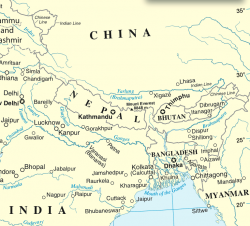 When it comes to the “war for talent,” Asia is today the hottest region. With national and global organizations in growth mode, the pressure on the talent market has increased tremendously, and many employers are unprepared.
When it comes to the “war for talent,” Asia is today the hottest region. With national and global organizations in growth mode, the pressure on the talent market has increased tremendously, and many employers are unprepared.
Even the largest multinationals that over the past few years have won over students around the world with their strong employer value propositions and attractive employer brands face a whole new set of challenges when setting their eyes on the Far East.
Tough Local Competition
According to the Universum IDEAL™ Employer Survey 2011, Asian students associate foreign employers with no job security, poor work/life balance, and a competitive and cut-throat environment. As we know, this does not sit well with the millennials, not even in markets like India and Japan.
Large national employers, on the other hand, are perceived as offering exactly what new graduates are looking for: a stable career with opportunity for growth, market success, competitive benefits and a friendly work environment. (For more on this, see the slides at the bottom of this article.)
Looking at the Universum IDEAL™ Employer Rankings in China, based on more than 45,000 respondents, we can see the truth behind the statement “perception is reality.” In 2011 local employers dominated 70% of the Top 10 list, while in 2006 China Mobile and Bank of China were the only two Chinese companies amidst eight Multinational Employers.
This is consistent with the rest of Asia. Another case is India: in 2006, Infosys was the only local employer listed in the Top 10, but one of five in 2011.
Quality of Candidates Still a Challenge
Although Asian talent is known to have strong technical skills, there is a low supply of candidates exhibiting the soft skills that employers are looking for, making recruiting the right talent a challenge for 80% of global employers.
Communication, adaptability, business acumen and team leadership are often lacking, as are managerial talent and candidates with specialized knowledge, collaborative skills, and out-of-the-box thinking.
Explosion of Asian Nationals Studying in the West
According to the Institute of International Education, 376,535 undergraduate and graduate Asian students are currently studying in the United States and the number of undergraduate Chinese students increased by 43% between 2010 and 2011.
Western-educated Asian students tend to have high GPAs, the skills that are necessary to be successful in a multinational environment, and prefer a career with multinationals over local Asian players; this makes global sourcing increasingly important.
According to data from the Nova Global Talent Strategy Indicator 2011, 60% of global employers recruit international students for roles in their home markets, particularly China, India, and Southeast Asia. The problem is, the competition for these students is strong, and identifying them and bringing them back is a challenge.
With an organization’s success depending on the management of the talent supply and the ability to attract and retain the right talent, it is more important than ever for organizations to have strong knowledge of the markets and the students they want to attract.
This means fully understanding what their target audience is looking for, their preferences and career goals, but also the perception of the industry, the company’s employer brand and that of the recruitment competitors.
Despite Asian students now exhibiting strong millennial traits, some of their priorities still differ from their counterparts in the West; especially when it comes to career goals and drivers of employer attractiveness. But most importantly, the differences and nuances across Asian markets and universities are very significant — which is why an EVP will not fully resonate unless it is localized to each individual country and target group.
Preferred Industries
While in the West “flight to safety” and continuous search for work/life balance challenges the banking sector, in Asia banks and financial services are still industries of choice among business students. Auditing, accounting, and management consulting are also strong across the region while other industries are more popular in specific markets (public sector & government in China, hospitality in Singapore, travel and leisure in Hong Kong).
IT professionals at banks tend to be paid more than employees in similar roles outside of the financial services industry, and this fact doesn’t go unnoticed. As banks ramp up their investments in technology and increase their IT recruitment numbers, IT students select banks as their IDEAL™ Employers much more frequently than in the past.
Career Goals
With continuing economic uncertainly and a tough job market, the desire for job security is increasing. Work/life balance, however, is still the most important career goal for students in Asia.
Having an international career has also grown in importance among business students, while engineering students would like to become technical or functional experts.
Even when it comes to career goals, there are market specific differences to keep in mind: business students in Hong Kong want to be dedicated to a cause or feel that they are serving the greater good by working for a company that has strong sense of corporate social responsibility; while their counterparts in Japan would rather be autonomous or independent.
Choosing an Employer
Monetary rewards and future career opportunities are the main driver in employer selection, with good prospects for future high earnings and good reference for future career as two of the top IDEAL™ employer attributes among business students.
Asian students are enjoying the new attention and high salaries. The vast opportunities to increase compensation through job-hopping causes the average tenure (about two years) to be significantly lower than in the West.
Like their millennial counterparts in the West, however, Asian students are gravitating toward employers that will mentor them and help them acquire professional training and development, but also enable them to have good work/life balance and work in a friendly environment.